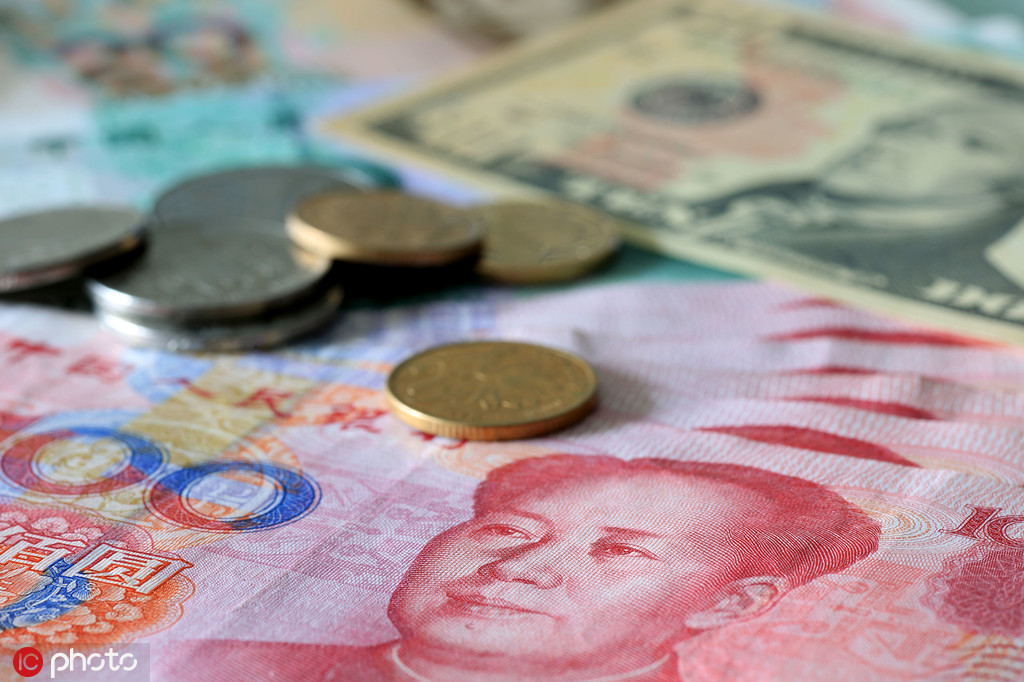PBOC: China not a 'currency manipulator'


Central bank criticizes the label as 'arbitrary', inconsistent with US Treasury's own criteria
China did not and will not use exchange rates as a measure to cope with trade disputes, and the United States labeling the country as a "currency manipulator" is inconsistent with the quantitative criteria set by the US Treasury itself, the central bank said on Tuesday.
"The US labeling is an arbitrary unilateral and protectionist practice, which seriously damages international rules and will significantly impact the global economy and financial markets," the People's Bank of China said in a statement, expressing deep regret over the US Treasury's decision.
The PBOC, the central bank, made the remark following Washington's decision on Monday to label Beijing a currency manipulator.
US officials said they will engage with the International Monetary Fund to eliminate China's "unfair competitive advantage", the US Treasury said in a statement.
The yuan weakened beyond 7 per US dollar on Monday for the first time since May 2008. The onshore traded yuan had dropped 1.33 percent to 7.0352 per dollar at close.
On Tuesday, the onshore rate of the yuan reached 7.0699 per dollar in intraday trading, a 0.49 percent drop, before closing at 7.0321 per dollar.
The renminbi's depreciation since the beginning of August has been driven and determined by market forces and reflects shifts in market dynamics and volatilities in global foreign exchange markets amid global economic developments and escalating trade frictions, according to the central bank.
The renminbi exchange rate regime is a managed floating one based on market supply and demand and with reference to a basket of currencies, the PBOC said.
The US Treasury uses three criteria to apply the designation: having large trade surpluses with the US, having a large current account surplus exceeding 3 percent of GDP and actively intervening in the currency markets. China does not meet those three criteria, and the US said on May 28 that the country was not a currency manipulator in its semiannual currency report.
China's current account surplus to GDP ratio was 0.4 percent last year.
"The US accusation does not have supporting evidence; it is an action that will complicate the trade issue," said Zhao Qingming, chief economist at the Institute for Financial Derivatives of the research arm of the China Financial Futures Exchange.
The US Treasury's statement pushed the dollar and stocks sharply lower and bolstered gold. In the US, the Nasdaq Composite Index dropped 278.03 points, or 3.47 percent, to close at 7,726.04 on Monday. The S&P 500 was down 87.31 points, or 3.7 percent, and shares of S&P 500 technology companies, which are highly exposed to the China market, dropped 4.1 percent.
Fears rose in global financial markets and sparked greater vulnerability since last week, as the US decided to impose tariffs on another $300 billion worth of Chinese goods starting on Sept 1.
"The recent financial market vulnerability reflected investors' concerns that trade tension escalation would further stall global economic growth," said Zhao.
Wu Ge, chief economist at Changjiang Securities, called the US Treasury's move "an imprudent decision".
"A country cannot be designated as a currency manipulator only because of one or two days' exchange rate fluctuations," he said.
Last month, the International Monetary Fund confirmed that the exchange rate of the renminbi had become more flexible and registered real appreciation over the past decade.
Yi Gang, the PBOC governor, reiterated in a statement on Monday that China will not pursue a competitive devaluation of the RMB, nor will it use exchange rates as a means for competition or coping with trade disputes.
Mei Xinyu, a researcher at the Ministry of Commerce's International Trade and Economic Cooperation Institute, said the renminbi is unlikely to depreciate sharply because its value is supported by the stable fundamentals of the Chinese economy and its longtime trade surplus, which is likely to continue to increase.
The recent weakness of the renminbi against the dollar reflected the increasing influence that market forces have had on the RMB exchange rate, and its fluctuations were normal, he said.
"Market forces drove the yuan down, thanks to Trump's latest tariff threat," said Gary Hufbauer, an economist at the Peterson Institute in Washington. He said China's action was not "manipulation" but rather a decision by the PBOC not to intervene.
The renminbi's fall is not currency manipulation but the exact opposite, said Ann Lee, a specialist in China's economic relations at New York University.
"China's regulators are probably just going to let it follow market forces at this point instead of using its precious dollar reserves to defend the currency," Lee said.
Liu Zhihua contributed to this story.





































